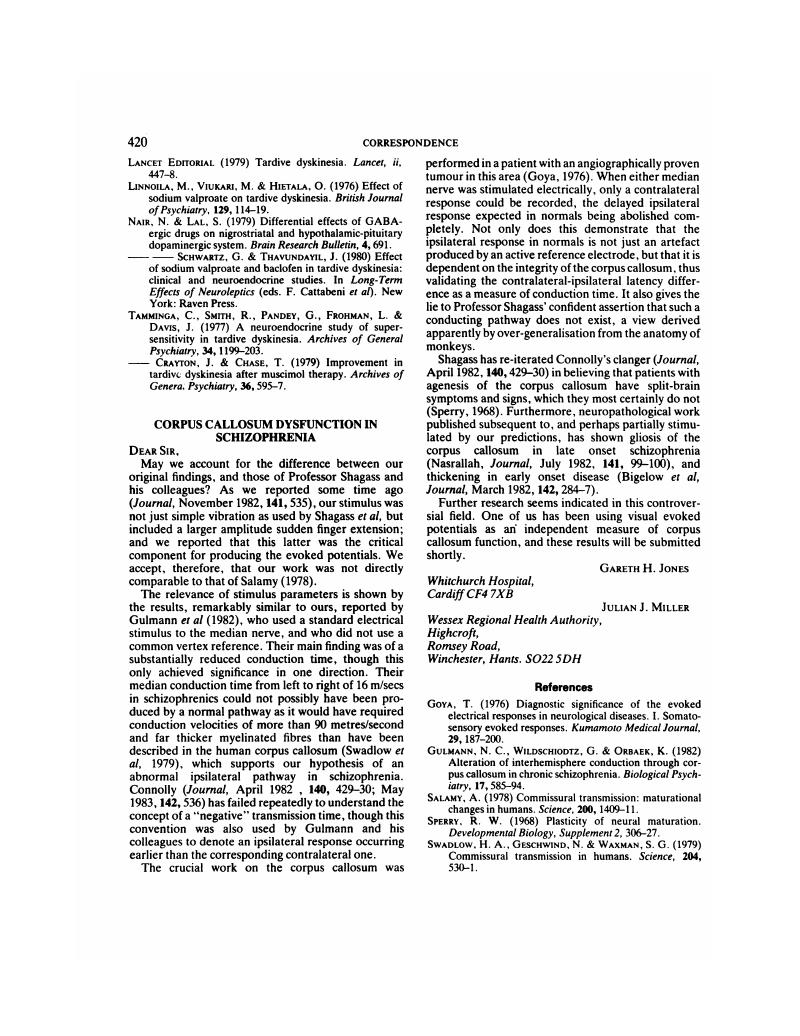Crossref Citations
This article has been cited by the following publications. This list is generated based on data provided by Crossref.
Catts, Stanley V.
Ward, Philip B.
Garvey, John R.
Fox, Allison M.
Michie, Patricia T.
and
McConaghy, Neil
1988.
Somatosensory Evoked Potential Activity: A Measure of Interhemispheric Transfer in Schizophrenia?.
International Journal of Neuroscience,
Vol. 38,
Issue. 1-2,
p.
131.




eLetters
No eLetters have been published for this article.